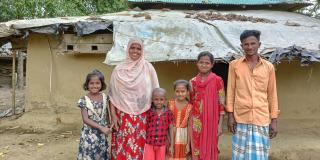
1 July 2020 to 30 June 2023
The Cox's Bazaar district in Bangladesh has been battling a humanitarian crisis for years. The arrival of hundreds of thousands of Rohingya refugees from neighboring Myanmar in 2017 has put enormous pressure on the local economy and facilities.
Tensions also arose between the local population and the refugees. VSO, together with consortium partners Terre des Hommes and Shushilan and with support from the GSRD Foundation, set up the Youth Empowerment for Social Cohesion (YESC) project to increase social cohesion and reduce the risks of conflict.
Growing tensions
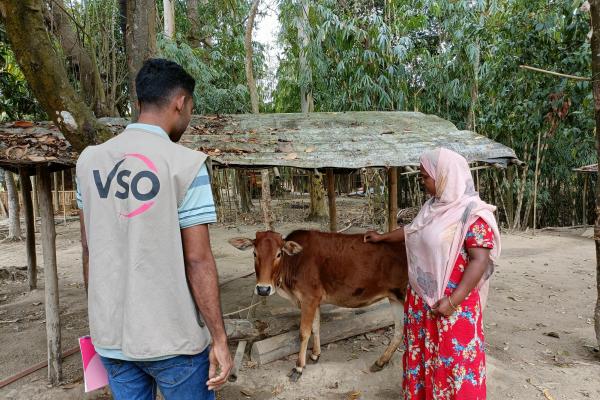
VSO has been active for years in Cox's Bazaar (Bangladesh), one of the world's largest refugee camps. Unfortunately, tensions are growing between the local population and the refugees in the camp. These tensions are exacerbated by the fact that many local residents feel that all the support from international organizations goes only to the refugees, while they also face major challenges. Essentials of living have become increasingly expensive, and the huge increase in population in the area has increased competition for jobs, as well as pressure on government services.
Recent studies emphasize that more attention is needed for the local population. A more holistic and integrated approach is needed. An approach that addresses the root causes of the conflict, with the aim of reducing tensions, improving social cohesion and increasing community resilience. This is the core of the Youth Empowerment for Social Cohesion (YESC) project.
Key achievements
18 youth clubs were established consisting of 360 youth (180 girls and 180 boys) and provided social and leadership skills, community advocacy and public speaking.
451 early married girls were linked with income generating activities to improve their livelihoods.
6 agricultural sales and service centres were established, allowing farmers to yield more crops, sell their products for more profit, develop their agricultural practices and get advice from the centres' market experts.
4,175 farmers were trained in Good Agricultural Practices (GAP), ecological and climate smart agriculture.
The project consisted of the following three pillars:
Participation
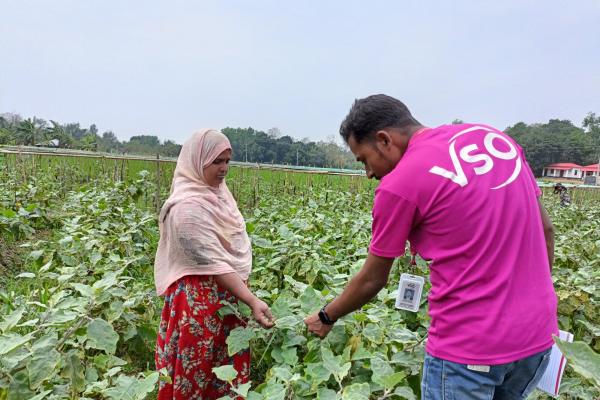
We ensured that young people could actively participate in decision-making within their community. For example, by setting up youth associations and training the members in how they could tackle social conflicts and contribute to more social cohesion. We also connected the young people with religious leaders, politicians and members of civil society, so that they could make their voices heard and stand up for their own interests, and those of their community.
Self-sustainability
We increased the economic stability and resilience of vulnerable families, especially families of girls who were married at a very young age. To achieve this, we supported the girls who married young with peer groups, in which they could become more aware of their rights and build up more self-confidence. During community meetings, members of these groups shared what they believe is needed to reduce the risks of conflict and increase social cohesion.
These ideas were taken on board by the local government. We also organized forums for spouses and family clubs. In order to ensure that the girls themselves could decide on matters that affect their lives, it was essential that we closely involved their husbands and mothers-in-law in the interventions. For example, we looked with the husbands at how they could support their wives on a socio-economic level, for example with regard to work or entrepreneurship for their wives.
Economic stability
We ensured that disadvantaged communities, especially women, had better access to agricultural value chains. This enabled them to better provide for themselves and improve their economic stability. To make this possible, self-selected and organized farmer groups were formed.
Within these groups, we looked at what challenges the members faced and what was needed to tackle these problems. For example, we offered a few farmers per group training in agricultural expertise. They shared their knowledge and skills with the other farmers. In addition, pilot projects were carried out with a few farmers. The results were then shared with the others so that they too could innovate.
We also set up sales and service centres where farmers could access to high quality agricultural products and services. Because the centres are located in their own community, they save time and transportation costs. We trained youth and women from the community to become entrepreneurs to run the centres.
Through workshops we made the community aware of available services, including those of the sales and service centres. In addition, in the workshops we connected farmers, young people, young married girls, companies, government departments, representatives of the banks and other stakeholders. Together we looked at how all stakeholders could develop functional value chains that benefited everyone.
Volunteering for development
Community volunteers played a vital role in the project in circulating the technical information among the primary actors as well as the community. They also organized quarterly meetings and trainings with the farmers' groups, early married girls' groups and youth groups. Community volunteers also provided technical services at the agricultural sales and service centres.
Community volunteers were supported by our two national volunteers. Our Business Development Assistant used their expertise to assist primary actors to develop their entrepreneurial skills and connect farmers and producers more directly with markets. Our Community Mobilization and Gender Specialist assisted on the empowerment of women and young girls and raised awareness on issues such as early marriage and family conflict management.
Learn more about our Volunteering for Development approach
The impact of Cyclone Mocha

On 14 May 2023, tropical cyclone Mocha hit the coastal areas along the Bangladesh-Myanmar border, bringing heavy rainfall, strong winds, and causing landslides in some areas in Cox’s Bazar. Over 1,500 shelters were damaged or destroyed by strong peripheral winds leaving over 8,000 people affected.
There was severe destruction of crops, plants and houses in Teknaf Upazila, especially impacting Saint Martin Island and Shah Porir Island. The YESC working area was impacted comparatively less than Teknaf.
Many of our primary actors’ homes and businesses were damaged. We provided technical support to help them recover their crops and provided them with training on how to produce short duration crops.
Find out more
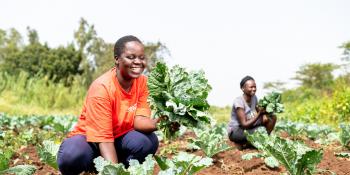
Resilient livelihoods
Ensuring people have the skills needed to support themselves and their families.
Over 400,000 people benefited from our work supporting livelihoods using our current strategy.
Bangladesh
We work across all of Bangladesh's 30 districts, building healthy communities, strengthening inclusive education systems, and supporting people to develop secure and resilient livelihoods.
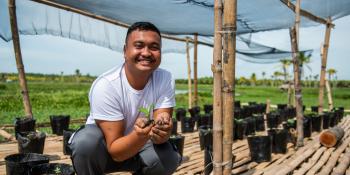
Our projects
VSO runs a vast range of projects spanning our three global programmes; resilient livelihoods, inclusive education and healthy communities.
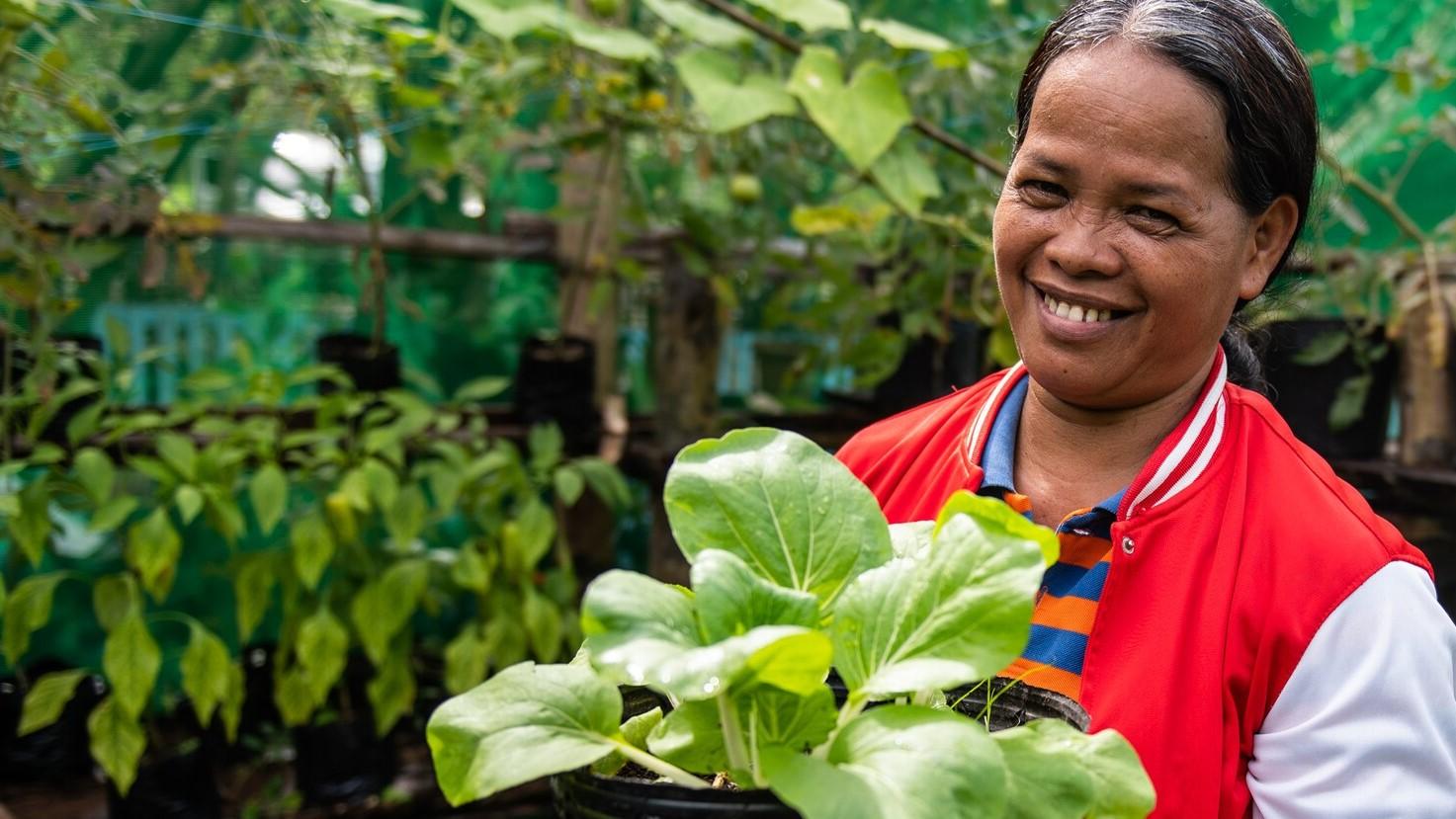
Support us with a donation
